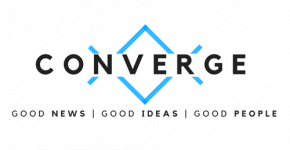When it comes to your small business finances, you really need to make sure you’re handling them correctly from the get-go. Cash flow is one of the most important things you will ever master in business, so avoid the following mistakes!
Failure To Have Your Business And Personal Accounts Separated
Commit yourself to creating separate savings no matter how convenient it is to have everything together. Doing this right at the beginning will make it much easier to do the accounting for your business, plan for quarterly tax estimates (in the U.S.) and budget for unpredictable months.
You’ll also get a far more accurate picture of the financial health of your business, without things overlapping with what you spend on yourself with the money you pay yourself. Having separate accounts will also mean you won’t be damaging your credit score if your business experiences problems.
The money your business earns shouldn’t go directly to you if you’re investing in growing your company and building a stronger future – having these accounts separate will help you to think of things differently.
Buying Super Expensive Things For The Business Right Away
It’s natural to want the best premises, software, equipment, and staff right away. However, even if these things feel like you’re making investments, you could be making a big mistake. Things that are not essential to your company and don’t make much difference to your bottom line should be avoided at the start. There are many free or just-as-good but cheaper alternatives you can go for that will get the job done.
Don’t forget, buying large personal items isn’t recommended either. You may want to show off your ‘quick success’ with a flashy car, but this shows you haven’t got the right mindset for money and business yet. In the beginning, you should expect many unknown variables and unexpected learning opportunities. You’re going to have failures, and that’s just being realistic. Many of these will come with a price. Being as lean as possible in your personal life really matters too.
Failure To Save For Emergencies
Saving for emergencies is an absolute must. All business owners should have at least three months worth of expenses in an emergency or contingency fund for both their business and their personal expenses.
Not Planning For Your Taxes
Depending on your business and where you are, you will have different federal and state tax obligations to be aware of. You must take initiative and be prepared to pay your tax in full and plan for this year round. Planning year round will stop you from being hit with a huge tax bill and being unable to pay it. There are many affordable income tax services you can use so that you’re not stuck doing this yourself.
You Haven’t Set A Clear Business Budget
You should have at least a rough guide of what you can spend on your business each month. Carefully planned budget for operational, marketing and other expenses are essential if you are to make your business profitable.






[…] tax return. You’ll find it easier to get these sorted through a professional accountant who can guide you through tax planning, investment decisions, and business budget. Additionally, you will also need to separate your […]
[…] your business budget should clearly outline all the costs you need to think about, you must ensure that you stay on top of each payment to reduce your stress […]